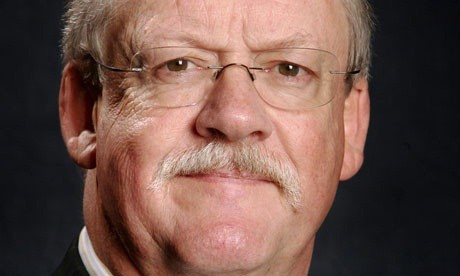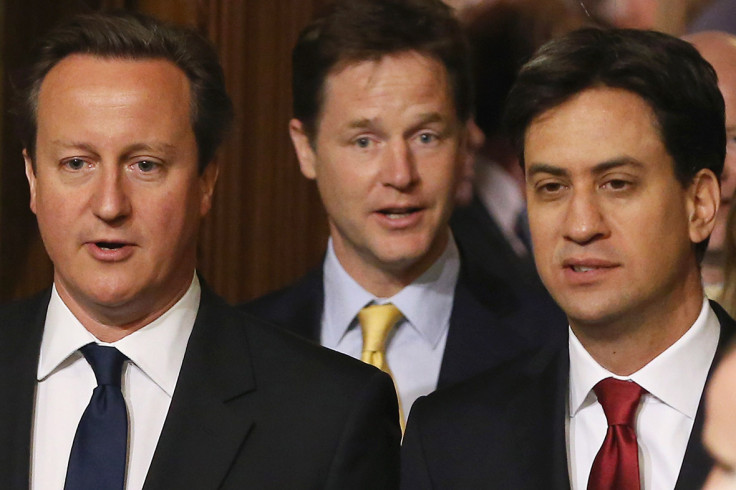Tories Pile into Newark Election to Derail Ukip Bandwagon

Residents in the market town of Newark will have found it difficult on Thursday to avoid being accosted by Tory party activists, MPs and even ministers as they became the focus of a concerted bid to stop the Ukip bandwagon in its tracks.
In a sign of fierce determination in the Tory high command, the party flooded the Nottinghamshire constituency in a final big push to hold onto the seat they have only lost three times in 130 years.
Under normal circumstances the 16,000 majority would be unassailable. It could be expected to fall as a result of traditional mid-term protest at the government of the day, but it would be safe.
But thanks to widespread disaffection with the mainstream parties, exploited to great effect by Nigel Farage's "people's army", these are a long way away from normal circumstances. And it has got the Tories rumbled.
If by some unprecedented earthquake Ukip's 70-year-old, very old-school candidate Roger Helmer snatches the prize from the Tory candidate Robert Jenrick, 32, it will not only signal a genuinely historic shift in British politics, it will send the Conservative party into a full-on, headless-chicken panic.
There would be renewed Tory demands for electoral pacts with Farage, radical shifts in policy on Europe and immigration plus a dramatic loss of confidence in the leader himself.
It would suggest the evaporation of what little chance Cameron currently has of winning an outright majority at the 2015 general election and the knives would be out for him.

Even a close second place for Ukip will send shockwaves through the party and spark some of the same demands.
The consequences of a Ukip victory on the other parties would be equally seismic with similar calls for changes of policy on those key campaigning issues of Europe and immigration.
Labour's Michael Payne, 27, should hold second place, but is braced for the distinct possibility of coming third ahead of the Liberal Democrats' David Watts who is likely to be pushed into a humiliating fourth place or, worse, fifth behind the Bus Pass Elvis candidate.
But the nightmare scenario should be avoided. What all the big parties need from this by-election is a clear sign that the Ukip bubble is bursting and that its recent "earthquake" in the local and EU elections was the protest vote it had always been suspected it was.
And in the days leading up to the poll that appeared the most likely outcome with surveys suggesting the Tories were on course for a good victory with Ukip way behind in second and Labour a few points back in third place.
That would spark some concern in Labour ranks, but far short of panic as it is not a key seat, and the result would immediately be written up as the bursting of the Ukip bubble and a serious setback to Farage's ambition of winning a number of Westminster seats in 2105.
Farage had himself toyed with fighting the seat but abandoned the idea amid claims he realised it was too tough a nut to crack.
In the 2010 election the Conservative's Patrick Mercer won the seat with 54% of the vote, Labour came second with 22%, the Liberal Democrats third with 20% and Ukip fourth with just under 4%.
It was Mercer's decision to resign after facing suspension from the Commons over lobbying activities that led to the by-election.
© Copyright IBTimes 2025. All rights reserved.






















